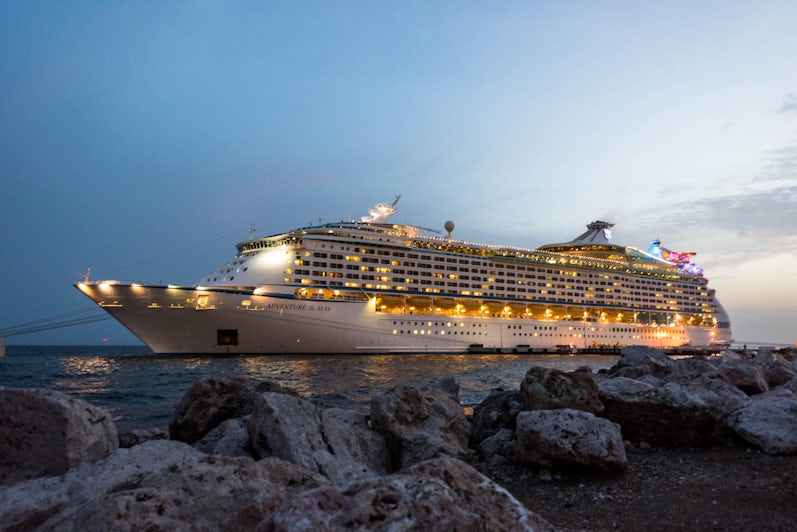
The Future of Cruises and the Cruise Industry, 2022 and Beyond


As travel begins to return in greater numbers following the COVID-19 pandemic, the future of cruise will continue to evolve in 2022 and beyond.
Pent-up demand already has led to a huge surge in bookings in 2022 and 2023 from cruisers who have had their trips canceled or delayed because of the pandemic as well as new bookings from people who foresee cruising coming back safer than ever.
A couple of examples of this: Oceania's world cruise for 2023 sold out within one day of opening for sale to the public January 27, 2021. And river cruise operator Uniworld has seen a 425 percent year-on-year increase in late 2021 and 2022 bookings to exotic destinations like India, Vietnam and Egypt.
Still, the future of the cruise industry has changed noticeably because of the pandemic. Here is a look at that future -- and what changes we can expect to see over the coming years.
Travel Restrictions Lifted -- But Vaccine Passports Required
In 2022 ...
Given that we're seeing a generally positive rollout of vaccinations across the globe, and scientists are optimistic about reaching herd immunity in 2021, we expect some momentum when it comes to cruising going into 2022. On the back of that positivity, we're making some bold predictions for next year.
Transport Canada will lift its ban on cruise ships calling in at its ports en route to Alaska, and the state will enjoy its busiest cruise year since 2019.
U.S. citizens will be able to return to Europe again, and we predict a boom, especially for river cruises.
Australia will (finally) have lifted its travel restrictions and 2022/23 season will be a boom one for cruising. Many lines are already planning for this, with Celebrity Cruises, announcing Celebrity Eclipse will return on a series of five to 18-night departures from Sydney and Auckland from September next year.
Aussies and New Zealanders will be allowed to leave their countries at long last, so we expect a large number in Europe in summer 2022, especially on the rivers.
We do predict, however, that vaccine passports, or at least something showing proof of vaccination, will become part of a requirement to travel, the same way certain inoculations, such as yellow fever, are for entering certain countries.
Tech at the Forefront
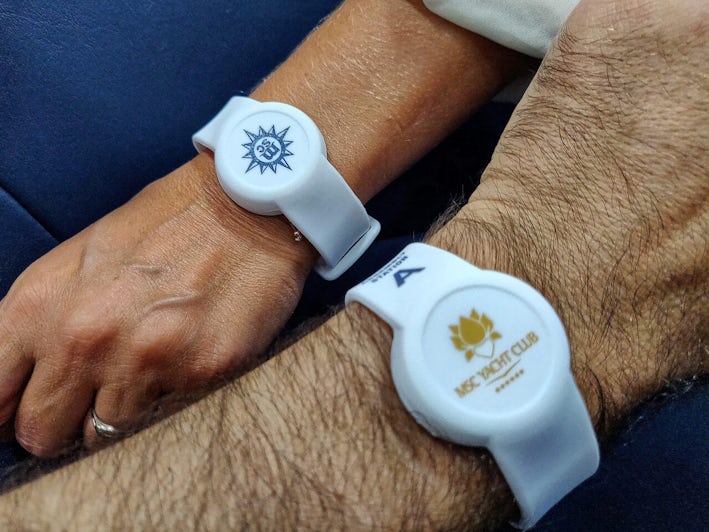
The pandemic turbo-charged the use of technology onboard.
What once might have seemed vaguely gimmicky -- using your phone as a keycard or to turn off your lights in your cabin -- has become the norm. Tech will be front and center of the cruise ship experience.
Almost everything you do before you get onboard -- online check in, boarding pass on your phone and the like -- will be touchless.
Once you are on the ship, your phone, RFID wrist band or Ocean Medallion or similar device will act as your keycard and to pay for drinks and services.
You will be encouraged to use the ship's mobile app to navigate the ship, track your kids, monitor your onboard spending, and to book meals, spa treatments, shore excursions and shows.
In-cabin voice-activated artificial intelligence (in the case of MSC Cruises' newest ships) will answer questions that you once would have had to pick up the phone or walk to the reception desk to ask.
The in-person muster drill will be a thing of the past. Royal Caribbean has already developed the e-muster process and other lines will follow suit to avoid crowds and congregating. Instead, it will take place in your cabin, with a check-in at your own time.
An interesting additional feature of RFID wristbands is that they can be adapted for use as a track and trace device -- something that Royal Caribbean is already doing in Singapore.
The use of QR codes to bring up menus (which also reduces waste) will likely be here to stay; and say goodbye to the paper daily planner left on your bed the night -- this will be accessed on your phone.
The Buffet

Much has been written about "the end of the buffet" onboard, following an announcement by Royal Caribbean, with many readers saying they would not cruise if it meant the end of the buffet. Here's one example from the Cruise Critic message boards:
"As for no buffets … No Buffet = No cruising for us. There is absolutely no reason to remove buffets from cruises."
As clarified by later statements, the buffet is not being removed; it will still be onboard, just in a different form.
It will be a compromise: Passengers will go to the serving stations and be served by crew rather than self-served. This was already in practice pre-COVID on Holland America Line for the first few days of cruises. Luxury lines also already had offered a version of this. Passengers still will have a more casual option, but it will remove the need for guests to touch utensils others have been handling.
Cruise lines are also likely to make more wrapped "grab-and-go" items available at the buffet and cafes.
Private Islands Come into Their Own
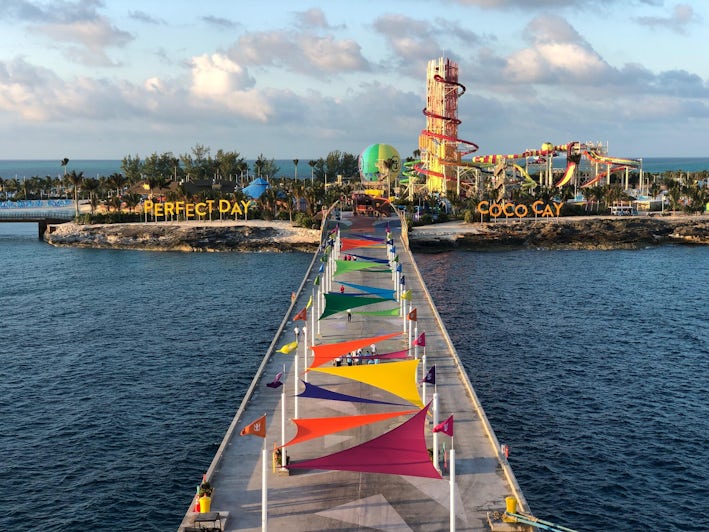
All the major cruise line groups own private Caribbean islands. MSC uses one in the Middle East, too -- Sir Bani Yas.
A day at a private island, whether it be Disney's Castaway Cay or Royal Caribbean's Perfect Day at CocoCay, has always been popular for those seeking beach fun. As cruising restarts in earnest, private islands will become less of a fun distraction and more of a necessity, allowing cruise lines to maintain the same health protocols on land as they do at sea -- and for passengers to wander at will, rather than having to take a ship excursion.
It's likely that at least in 2022, most Caribbean itineraries will include a stop and/or an overnight at a private island, and in the case of Virgin Voyages, at its private beach club.
Destination-Specific COVID-19 Requirements
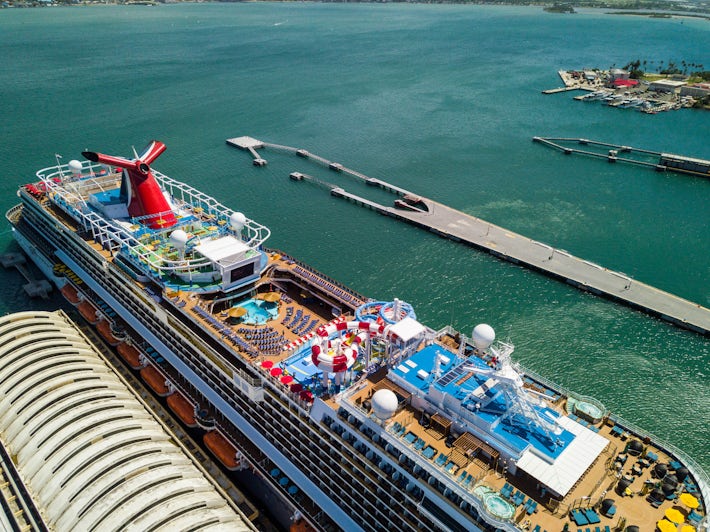
Destinations will continue to be vigilant about controlling COVID-19 for the next few years. Negative COVID-19 tests or proof of vaccination will be required for entry into many countries, as the world works to eradicate the virus.
Cruise lines and cruise travel agents will have to help passengers navigate through this tricky area and all the logistics that will come with traveling in the post-pandemic era. In the same way lines organize visas for passengers to enter certain countries, they will have to help passengers with getting COVID tests before returning to their own countries (if a negative test is required).
Expect to see long-term changes to the embarkation process. In addition to proof of vaccination or negative COVID test results, changes first rolled out by lines that have restarted already around the world (Costa, MSC and Royal Caribbean, for example) will become part of the cruise experience. Expect to see fixed (and enforced) boarding times to avoid huge crowds; fully automated and almost touchless check-in and a more robust health screening, such as temperature checks at boarding and possibly even PCR testing.
Small and Expedition Ships Become More Popular
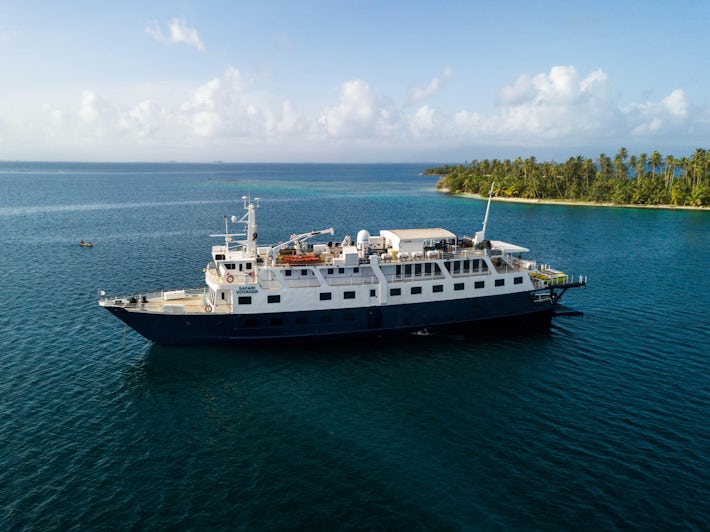
Already in 2021, small and luxury ship lines are garnering bookings from people who are new to their brands -- and that trend will likely continue for several years as people eschew crowds for a more intimate atmosphere.
This will also benefit and coincide with the explosion of expedition cruise ships that have been scheduled to arrive in 2022 and beyond. The ships are not only smaller by definition, but they also appeal to people seeking out the bucket list cruises that have been put on hold for two years.
Expedition ships also focus on outdoor exploration in more remote places, which has become a priority during the pandemic.
Whole-ship charter cruises will enjoy a boost as groups seek to stay safe with people they know.
Shorter Cruises Take Off
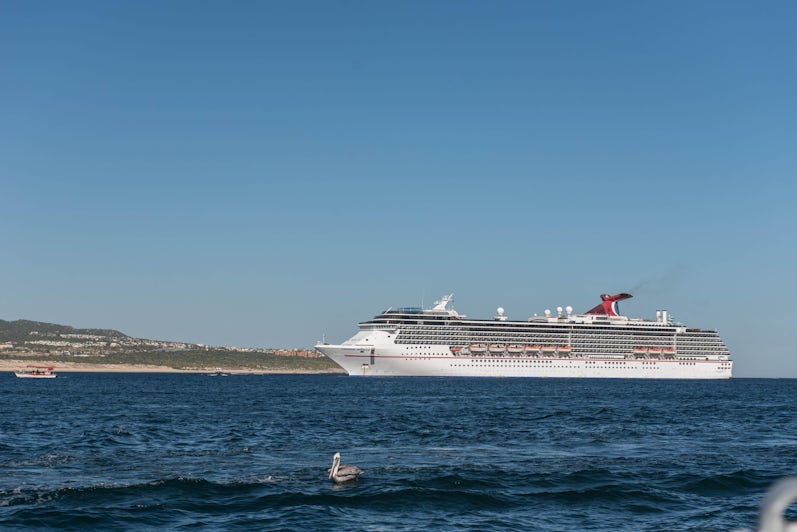
The industry requirement that North American cruises stick to weeklong or shorter cruises is set to expire November 1, 2021. But as the industry restarts, it's looking clearer that shorter cruises will become more of the itinerary mix.
Carnival is, of course, a pioneer of shorter itineraries and is upping the number on offer this year from the West Coast.
After taking over three- and four-day itineraries from Long Beach in 2021, Carnival Miracle is going to continue its series of four- and five-day cruises to Mexico during the winter season, beginning November 2021 and continuing through April 2023.
Virgin Voyages, which is still set to debut this year, is following Carnival's lead and offering four- and five-day cruises, which include a stop at its private beach club
And Royal Caribbean, despite divesting itself of two of the ships (Empress of the Seas and Majesty of the Seas) that offered short cruises, has a whole roster of two-, three- and four-night breaks in November onward, most of which include a stop at its private island of Perfect Day at CocoCay.
World Cruises and Far-Flung Destinations Grow
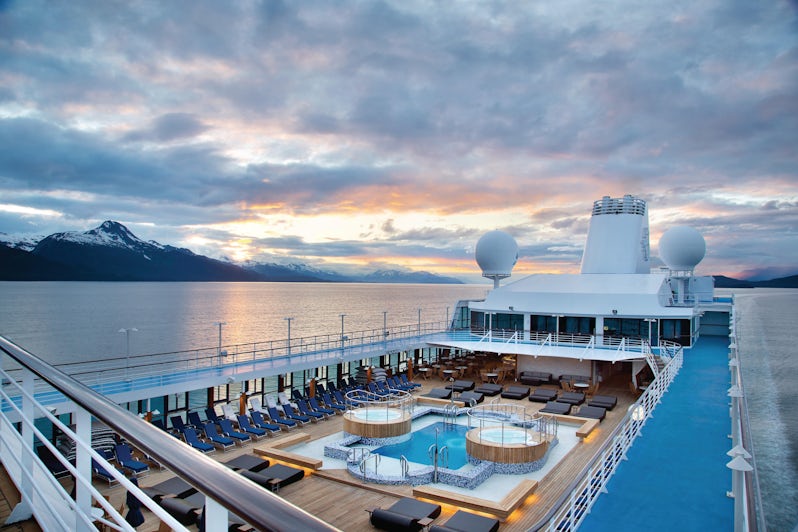
It might sound like a contradiction, but at the other end of the scale, we see world cruises and cruises to far flung destinations, whether by ocean or river, becoming more popular.
This has been borne out by booking trends, but the other factor in play is those people who had their once-in-a-lifetime cruise canceled in 2020 and aren't hopeful for it happening in 2021 will have waited three or four years to take that bucket list cruise. There's also a sense with the pandemic that life is short, and what is the point of putting off that special experience any longer -- if not now, then when?
Add to that a trend we have seen bubbling away for a while -- experiential cruises -- and we predict a boom in multi-generational cruises with grandparents taking one or two generations with them for shared experiences.
Long-Term Future of the Cruise Industry
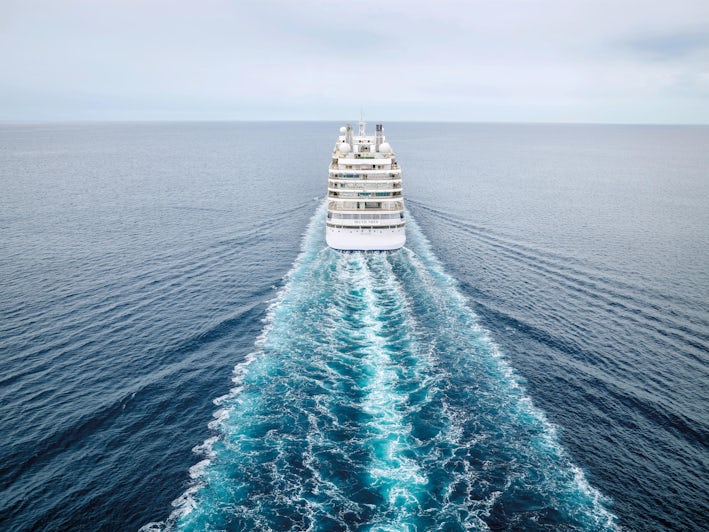
The pandemic might be seen as a collective wake up call for everyone. Companies worldwide will be rethinking their business models and challenging traditional assumptions. Expect the cruise industry to do the same.
During the height of the pandemic, we saw more cooperation across cruise brands than perhaps ever before, with companies focused on the greater good of the industry rather than for their own corporations. Expect this trend to continue long-term, especially as it pertains to health and safety of guests.
"There is no competition when it comes to health and safety, said Royal Caribbean Group CEO Richard Fain said, who joined with Norwegian Cruise Line Holdings President and CEO Frank del Rio in forming the joint Healthy Sail Panel.
Similarly, the drum beat of overtourism, which reached a height in 2019, will be considered more thoughtfully in 2022 and beyond, with lines working closely with one another and destinations, so as not to overwhelm an island or a town with multiple arrivals all on the same day.
Cruise lines will be leaner (witness how many ships have been scrapped in the past 12 months), with the larger lines maintaining far fewer smaller and older ships in their fleets.
Finally, it's unlikely COVID-19, like the flu or norovirus, will be eliminated completely, either on ships or around the world.
What's important is how the lines prepare for and react to onboard cases in the future.
Some long-term changes will mitigate this: Ships will set aside more of their cabins as isolation spaces; the enhanced medical facilities introduced onboard will stay, and improved ventilation and deep cleaning with hospital-grade technology will become the norm.